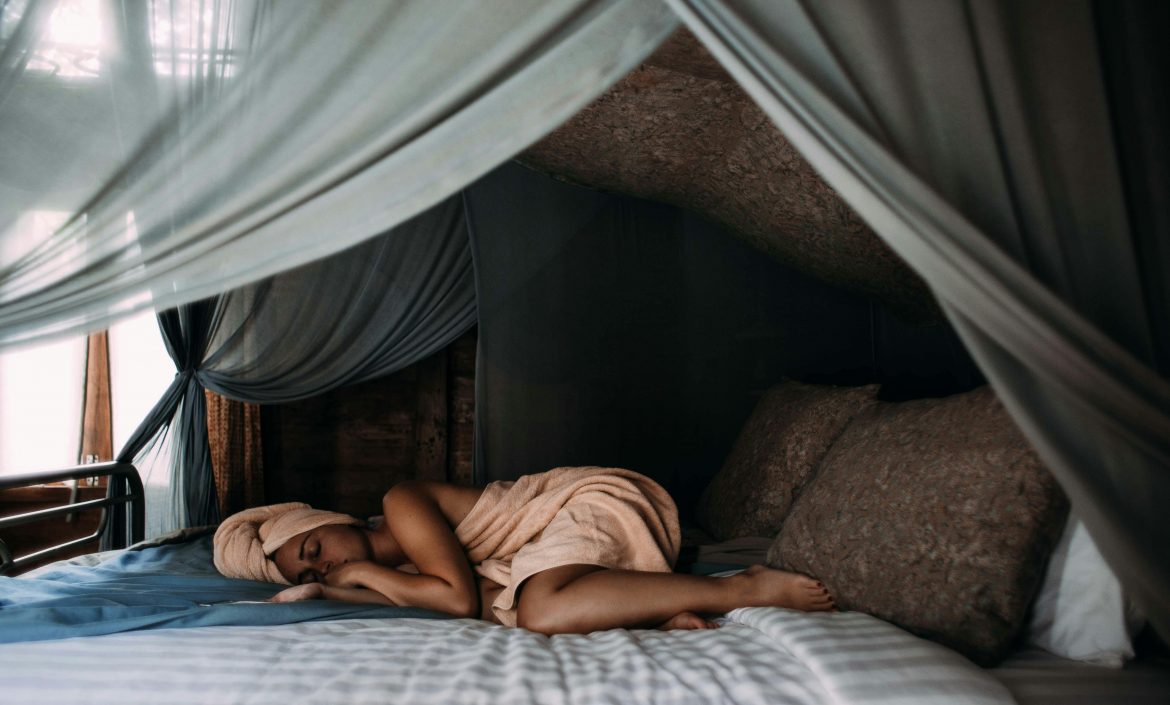Travelling can be exciting, but when it throws off your sleep schedule, the effects are far less enjoyable. Whether you’re crossing time zones, sleeping in unfamiliar beds, or struggling to wind down after a packed itinerary, disrupted rest can lead to grogginess, irritability, and even physical symptoms. Thankfully, with a little foresight and consistency, it’s possible to maintain your sleep routine and feel well-rested, no matter where in the world you are.
ALSO SEE: 8 ways to reduce fatigue in the morning
Adjust your sleep times before you leave
If you’re heading to a different time zone, it’s worth shifting your sleep and wake times a few days before you depart. This gradual adjustment gives your internal body clock, also known as your circadian rhythm, a chance to adapt. Moving your bedtime forward or backwards in 15 to 30-minute increments can help reduce the severity of jet lag and make it easier to sleep on arrival. Even if you’re not changing time zones, easing into a new schedule can cushion the effects of early mornings or late nights while you’re away.
Maximise exposure to natural daylight
Your body takes its cues from light – it’s one of the most powerful regulators of sleep and wakefulness. Spending time outdoors and getting sunlight in the morning, in particular, helps reset your internal clock. If you’re travelling east and waking up too early, avoid early sunlight and seek light in the late afternoon. If you’re heading west and struggling to stay awake in the evening, get exposure to morning sunlight to help shift your body clock later. Wherever you’re headed, natural light will be your ally in aligning your rhythm with your new environment.
Stick to a consistent routine
One of the biggest sleep disruptors while travelling is the loss of your usual habits. Sticking to your normal bedtime rituals – whether it’s reading, taking a warm shower, or dimming the lights – helps signal to your brain that it’s time to sleep. While it’s tempting to stay up late or sleep in when you’re out of town, maintaining regular sleep and wake times can help you stay energised and well-rested. Even keeping meal times consistent can support your internal rhythm.
Recreate your sleep environment
A new bed, different smells, and unfamiliar noises can make it harder to fall asleep. One way to counter this is to bring familiar items with you. A pillowcase from home, a calming scent you usually associate with bedtime, or your favourite sleepwear can create a sense of comfort and familiarity. These small touches help trick your brain into relaxing and settling into rest more easily.
Create a sleep-friendly space
Hotel rooms, guest bedrooms, or rented apartments often come with their own set of challenges. The temperature might be off, the mattress may feel foreign, or there could be streetlights filtering in through thin curtains. Wherever you’re staying, aim to create a dark, cool, and quiet space. Consider bringing earplugs and a sleep mask to block out disruptive noise and light. If you can control the temperature, aim for a slightly cool room – this helps your body drop into a deeper, more restorative sleep.
Watch your intake of food and drink
Travel tends to go hand-in-hand with indulgence, but what you consume in the hours before bed can make or break your sleep. Heavy meals, sugary snacks, and caffeine can all interfere with your body’s ability to wind down. Alcohol might make you drowsy at first but often disrupts the quality of your sleep later in the night. Aim to finish eating at least a couple of hours before bedtime, and try to stay hydrated throughout the day.
Avoid napping for too long
Long naps during the day might seem like a quick fix for sleep deprivation, especially after a red-eye flight or overnight journey. But they can confuse your body clock and make it harder to sleep later on. If you must nap, keep it short – around 20 minutes – and try not to nap too close to bedtime. Instead, focus on adjusting to the local time zone as quickly as possible, even if it means powering through a few groggy hours.
Balance rest with enjoyment
While it’s important to prioritise sleep, travel is also about enjoying new experiences. The key is to find a healthy balance – indulge in your adventures, but carve out time to unwind at the end of the day. Sticking to a few core habits, like going to bed and waking up at consistent times, creating a relaxing bedtime routine, and limiting stimulants, can help you maintain your sleep schedule even on the go.
Getting quality rest when you’re away from home isn’t impossible – it just requires a bit of planning and consistency. By listening to your body and creating an environment that supports sleep, you’ll be better equipped to enjoy your trip and return feeling recharged.
ALSO SEE:
Featured Image: Pexels

